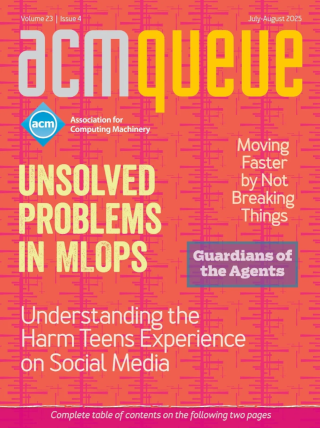
The Effects of Mixing Machine Learning and Human Judgment:
Collaboration between humans and machines does not necessarily lead to better outcomes.
Based on the theoretical findings from the existing literature, some policymakers and software engineers contend that algorithmic risk assessments such as the COMPAS software can alleviate the incarceration epidemic and the occurrence of violent crimes by informing and improving decisions about policing, treatment, and sentencing. Considered in tandem, these findings indicate that collaboration between humans and machines does not necessarily lead to better outcomes, and human supervision does not sufficiently address problems when algorithms err or demonstrate concerning biases. If machines are to improve outcomes in the criminal justice system and beyond, future research must further investigate their practical role: an input to human decision makers.
Putting Machine Learning into Production Systems:
Data validation and software engineering for machine learning
Breck et al. share details of the pipelines used at Google to validate petabytes of production data every day. With so many moving parts it’s important to be able to detect and investigate changes in data distributions before they can impact model performance. "Software Engineering for Machine Learning: A Case Study" shares lessons learned at Microsoft as machine learning started to pervade more and more of the company’s systems, moving from specialized machine-learning products to simply being an integral part of many products and services.
Persistent Memory Programming on Conventional Hardware:
The persistent memory style of programming can dramatically simplify application software.
Driven by the advent of byte-addressable non-volatile memory, the persistent memory style of programming will gain traction among developers, taking its rightful place alongside existing paradigms for managing persistent application state. Until NVM becomes available on all computers, developers can use the techniques presented in this article to enjoy the benefits of persistent memory programming on conventional hardware.
Koding Academies:
A low-risk path to becoming a front-end plumber
Encourage your friend to pick a course that will introduce concepts that can be used into the future, rather than just a specific set of buzzword technologies that are hot this year. Most courses are based around Python. Encourage your friend to study that as a first computer language, as the concepts learned in Python can be applied in other languages and other fields. And make sure to be very direct in explaining that the certificate effectively makes its holder a front-end plumber, able to unclog the series of pipes that run between businesses and consumers’ wallets, and that becoming a software engineer will take quite a bit more study and practice.
Hack for Hire:
Investigating the emerging black market of retail email account hacking services
Hack-for-hire services charging $100-$400 per contract were found to produce sophisticated, persistent, and personalized attacks that were able to bypass 2FA via phishing. The demand for these services, however, appears to be limited to a niche market, as evidenced by the small number of discoverable services, an even smaller number of successful services, and the fact that these attackers target only about one in a million Google users.
Write Amplification Versus Read Perspiration:
The tradeoffs between write and read
In computing, there’s an interesting trend where writing creates a need to do more work. You need to reorganize, merge, reindex, and more to make the stuff you wrote more useful. If you don’t, you must search or do other work to support future reads.



